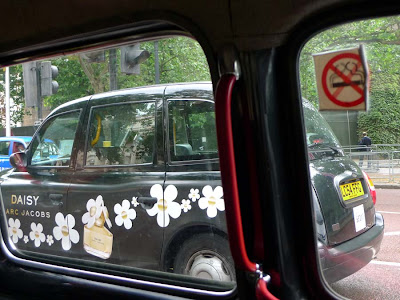So I have been re-reading H.P. Lovecraft, mainly because I haven't read him lately, but also because I felt it was time to upgrade my tattered old Lancer paperback collections from the 60's with the spiffy collections from Penguin that feature copious annotation by
HPL expert S.T.
Joshi. So eager was I to jump into the lair of the Elder Gods that I only just now noticed two little words on the cover that I find absolutely astonishing: "Penguin" and "Classics."

Sweet fancy Moses, the world has turned! Was there ever more of an outsider than Lovecraft? Yet this writer of
cheapjack pulp horror, whose work was so obscure that his friends had to create their own publishing house to keep it in print after his death, has been placed -- by the editors at Penguin, at least -- on the same shelf as Dickens, the
Brontes, Thackeray, Austen, Twain, and Ben Jonson! There couldn't be a greater recognition of his work if
Kazuo Ishiguro were to take a stab at writing a Cthulhu Mythos story. Not bad for a guy who never saw any of his work professionally published in book form while he was alive.
(I realize this mainstreaming of genre fiction has been going on for a while -- probably since the 90's, when Vintage Books started publishing guys like Alfred
Bester and Phil Dick. But it hadn't really penetrated my thick, defensive skull until I looked at that Lovecraft cover.)
In my subsequent lonely wanderings on the Internet in search of
Lovecraftiana, I came across a website called
The Modern Word, which may be the most brilliant literary website or the most pretentious, I haven't quite sorted it out yet. It contains a section on "experimental writers," and there to my delight I found listed not just the usual suspects, like
Barthelme, Borges, Becket, Pynchon and
Robbe-
Grillet, but also a host of friends and idols: Chip
Delany,
Mervyn Peake, Mike
Moorcock, J.G. Ballard and, of course, Lovecraft. Not all of them considered "experimental" writers by the
cognoscenti, but they all should be. (And frankly, Sturgeon, Ellison, Tom
Disch, and quite a few others belong on the list.)
Is this proof that the
phantasmagoric (by which I mean fantasy, horror, and -- don't hit me -- SF) has become the dominant literature of the past hundred years? Some of the most mainstream of writers have tried their hand at it -- Updike, Phillip Roth, even J.D. Salinger stuck his toe in the pool of the fantastic, so to speak. The past century has seen such tectonic shifts in technology and culture -- a million eruptions of information, the destruction of cultural space, the rise of
hyperlogic. Who else can vanquish the
tyranny of the rational and speak of the true human condition, other than
crypto-surrealists like Lovecraft,
Tolkein, Asimov, Stanislaw Lem, Lord
Dunsany, James
Blish, Roger
Zelazny, Angela Carter, Alfred
Bester and Phil Dick? Or for that matter, Stan Lee, Jack Kirby, Steve
Ditko, Len
Wein, Alan Moore or Wendy and Richard
Pini? And if you were to stand up and shout that J.G. Ballard's "
The Atrocity Exhibition" was the greatest book of the past 50 years, well, I for one would stand beside you and help you duck the brickbats.
So does Lovecraft deserve to be placed in the same league as George Elliot or Thomas Hardy, as Penguin's designation suggests? In my mind, he has always been there.
Oh, Howard Phillips, you outcast, you leper, you proud and self-designated amateur, you whom Edmund Wilson called "a hack," if you could have just a glimpse of what you have wrought with your provincialism, your xenophobia, and your horror of
miscegenation. If you had known that one day your work would have sold in the millions, that your name would be as synonymous as Poe's with a specific brand of existential horror, that children would play with stuffed
Cthulhus, would it have fractured your mind? Or has the world itself succumbed to the madness which devoured so many of your narrators?





















